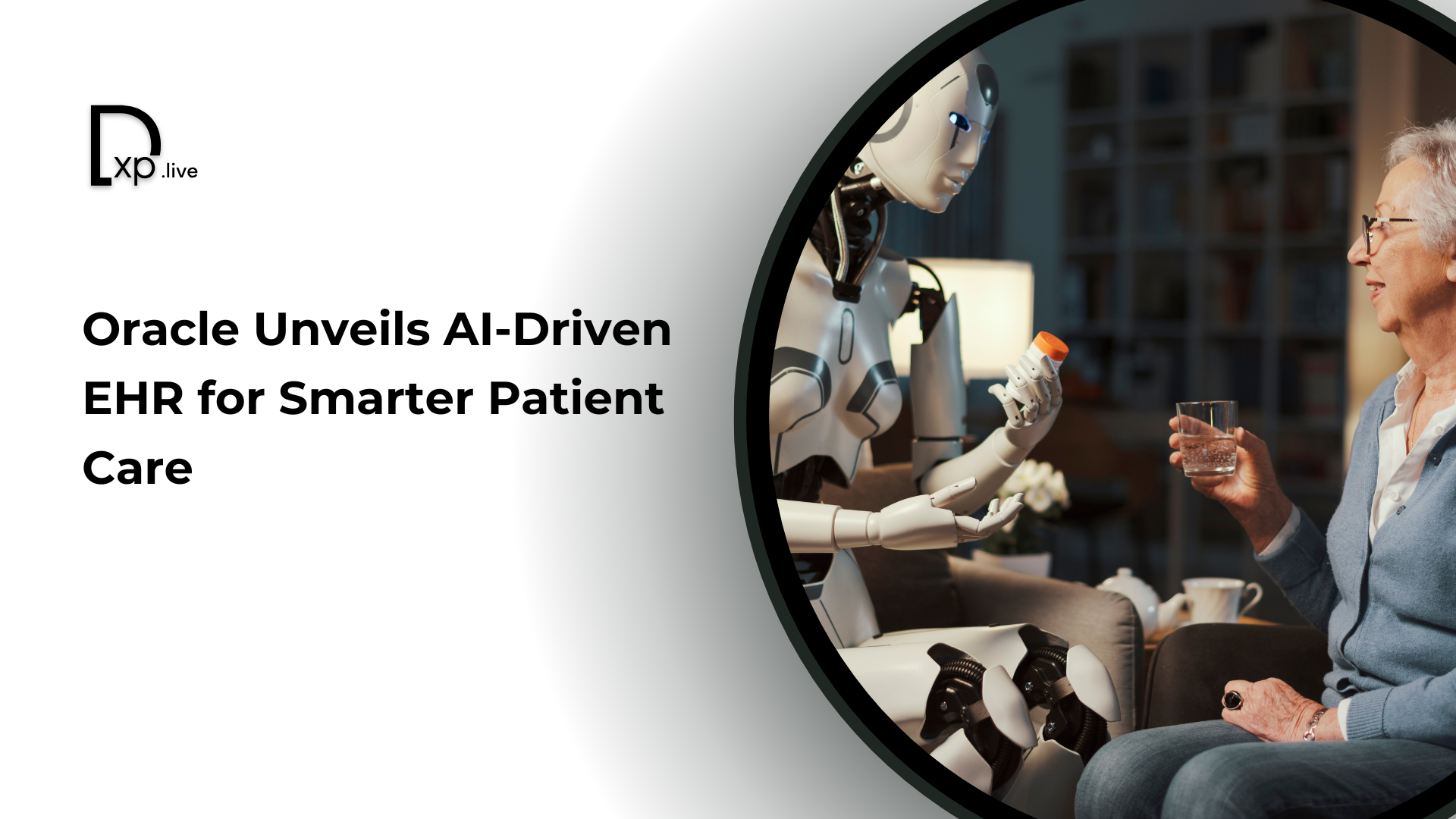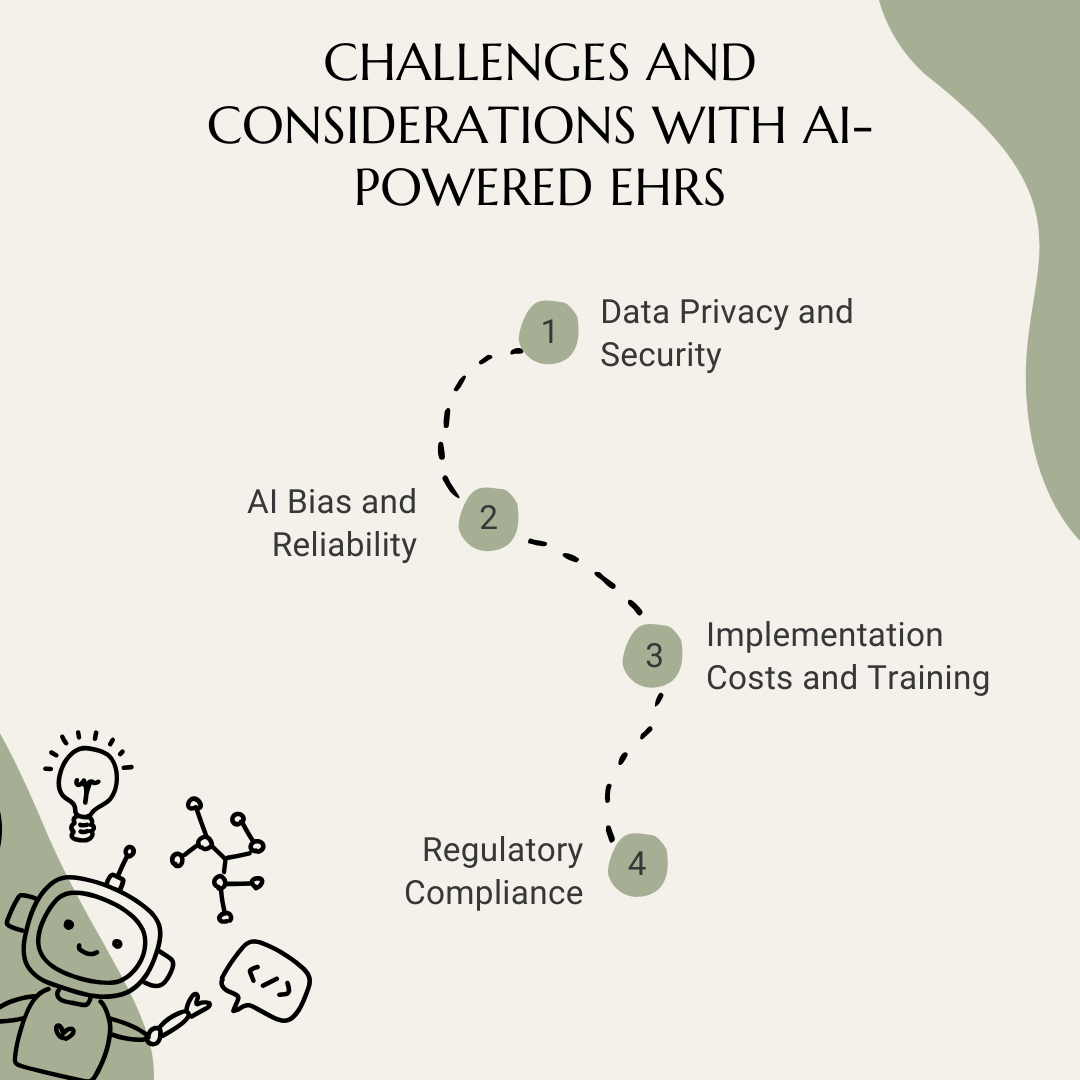Oracle Unveils AI-Driven EHR for Smarter Patient Care

In a recent update, Oracle has officially launched its AI-enhanced electronic health records (EHR) system, which has generated a lot of enthusiasm in the healthcare sector. Artificial intelligence will impact all sectors of the economy, but the healthcare sector seems to be one of the most industries that will be impacted the most. By embedding artificial intelligence in EHR systems, Oracle intends to improve patient outcomes and improve the way clinical tasks are done, solving long-standing issues of accessibility of information, interoperability, and clinician exhaustion.
As it stands, Oracle has always been keen on improving healthcare systems, believing that efficient modern-day EHR systems are key to fast-tracking quality and patient-centered care. Such attempts to invest in AI-equipped tools suggest organizations resolve to promote healthcare advancement in the future since better AI tools can improve many patient-related factors.
The Evolution of Electronic Health Records (EHRs)
The introduction of EHRs brought a complete change to the healthcare landscape as layman record-keeping changed to a computerized format. At the outset, the establishment of EHRs had a reason for encouraging the storage of patient information, improving convenience, and limiting human error. As early as the year two thousand, policies initiated by the local governments encouraged widespread implementation. However, in spite of people’s changes, the primary forms of EHR are still associated with a number of great challenges since it is always hard to enter and retrieve information from a database, information from different clinics is not always schema compatible, and too much time spent entering text may lead to giving substandard attention to the patients.
Over the years, AI integration has gradually started solving these problems, and above all the efficiency and precision of EHRs have improved. Data entry becomes much easier thanks to machine learning algorithms and the use of natural language processing (NLP) accelerates the speed and accuracy of information decoding. The situation is also improving in terms of interoperability, as AI-based approaches now make it easier to connect different systems. Oracle’s AI-driven EHR system is able to illustrate such transformation as it builds on technology and insight to improve productivity and therefore works towards delivering better outcomes for patients with a more coherent approach to how practice’s processes are managed.
Overview of Oracle’s AI-Powered EHR System
Oracle's AI-powered Electronic Health Record (EHR) system integrates advanced AI capabilities to streamline healthcare workflows and enhance patient care. Key features include Automated Data Entry and Management, which reduces manual input errors and ensures data consistency across platforms, minimizing administrative burdens. Additionally, the Predictive Analytics for Patient Outcomes feature leverages AI models to analyze patient data, identifying potential health risks and supporting early intervention strategies, making preventive care more attainable.
Personalized Patient Care is another standout feature, where AI-driven insights drawn from patient history enable clinicians to tailor treatment plans specific to individual health needs. Enhanced Interoperability allows seamless data sharing across various healthcare systems, supporting a more cohesive patient care experience.
Oracle's EHR utilizes its proprietary Oracle Cloud Infrastructure and AI frameworks, emphasizing robust security features to protect sensitive health data and ensure compliance with healthcare regulations. This approach reflects Oracle's commitment to advancing healthcare technology while prioritizing patient privacy and regulatory adherence.
Benefits of AI-Powered EHRs for Healthcare Providers and Patients
Both medical professionals and patients derive benefits from the use of mental health EHR systems enhanced by AI. For instance, an electronic health record reduces the manual load of tasks by allowing certain processes to be automated and documentation to be performed more quickly, helping to decrease the level of fatigue among clinicians and increasing the focus on rendering clinical services. Insights provided by real-time data help in making clinical decisions, by having the necessary patient data at hand and health risks being anticipated. Integrating AI also helps in cutting down the operational costs in terms of reduction of human error and better utilization of resources, thus allowing the providers to use the savings on patient services.
Patients, on the other hand, stand to benefit from AI-enhanced EHRs for improving health through timely and precise diagnosis procedures with effective predictive capabilities for creating better treatment regimens. AI has proficient capabilities for use in historical data analysis which thereby recommends appropriate care that would suit the patient’s requirements. Administrative tasks are also made easier by these procedures reducing the amount of time patients have to spend waiting for treatment due to accessibility of data and so more confidence is placed in the healthcare system.
Challenges and Considerations with AI-Powered EHRs
AI-powered electronic health records (EHRs) offer transformative potential but come with significant challenges and considerations.

Data Privacy and Security are paramount, as EHRs store sensitive patient information that must be protected under HIPAA and similar regulations. With healthcare data being highly targeted, robust cybersecurity is crucial to prevent breaches that could compromise patient trust and safety.
AI Bias and Reliability pose additional risks, as algorithms can inadvertently inherit biases from their training data, potentially leading to skewed diagnoses or treatment recommendations that disproportionately affect certain patient groups. Addressing this requires continuous monitoring and adjustment of algorithms.
Implementation Costs and Training add another layer of complexity, as adopting AI-enabled EHRs involves substantial financial investment and demands that healthcare providers train staff to effectively use these new systems.
Finally, Regulatory Compliance requires navigating strict healthcare laws, adding to the challenge of integrating AI into EHRs without compromising patient care or legal standards.
Case Studies and Examples of AI-Powered EHR Success
Oracle’s AI-powered Electronic Health Record (EHR) is already showing promise in pilot projects and among early adopters. In preliminary deployments, Oracle's EHR has been tested with healthcare providers focused on enhancing patient care through data-driven insights and streamlined clinical workflows. These pilot programs emphasize rapid, AI-assisted data entry, helping clinicians focus more on patient interaction than paperwork. Oracle’s AI tools also work to detect and reduce errors by providing clinical decision support, predicting potential health risks, and suggesting proactive interventions.
Success stories from other healthcare providers with AI-integrated EHR systems have shown tangible impacts. For example, Mayo Clinic's AI-powered EHR tools analyze patient data in real-time to support faster, more accurate diagnoses and tailored treatment plans. Additionally, Cedars-Sinai's adoption of AI-driven EHR workflows has led to improved physician efficiency and reduced administrative burdens. These cases demonstrate how AI-powered EHRs like Oracle’s can transform care delivery by improving accuracy, efficiency, and patient outcomes.
The Future of AI-Powered EHR Systems in Healthcare
The AI-driven Electronic Health Record (EHR) system from Oracle shows that an important change in healthcare is underway. AI-integrated EHRs in the future could have a huge impact on how we will care for patients by collecting information from wearable devices, IoT, and telehealth platforms. For example, devices like wearables can offer up-to-the-minute health data that AI-driven EHRs could assess continuously and be able to notify healthcare providers in case of an emergent risk making it possible for early intervention. Telehealth data can also feed directly into these systems, giving providers in another setting a cohesive view of patient health statuses.
The goal in the future for AI-powered EHRs is to broaden that lens even more through preventive and predictive care. Using population-wide data, AI can recognize early signs of diseases like diabetes or heart disease and help spur preventative instead of responsive care. However, Oracle integrating AI into EHRs translates to a future where healthcare is individualized and data-driven leading us toward the path of precision medicine which will help in better patient outcomes as well as make hospitals more efficient.
In Summary, Oracle's introduction of AI-powered electronic health records (EHR) marks a significant advancement in healthcare technology. By leveraging artificial intelligence, Oracle enhances patient care through improved data accuracy, predictive analytics, and streamlined workflows. The integration of AI into EHR systems facilitates better decision-making for healthcare providers, ultimately leading to more personalized treatment plans and improved patient outcomes. Oracle's commitment to innovation in this space underscores its role as a leader in transforming the healthcare landscape.
Stay Ahead in Healthcare Innovation! Embrace Oracle’s AI-powered EHR systems to enhance patient outcomes and streamline workflows. Don’t miss the chance to improve efficiency—explore the benefits of AI integration today! Subscribe to our page for the latest trends in healthcare technology and join the movement toward smarter, personalized care!
FAQs
1. What are the benefits of Oracle’s AI-powered EHR systems?
Oracle’s AI-powered EHRs improve patient outcomes through enhanced data accuracy, streamlined workflows, and predictive analytics while reducing clinician burnout and administrative tasks.
2. How does AI integration improve electronic health records?
AI integration automates data entry, enhances interoperability, and provides real-time patient insights, leading to quicker diagnoses and more efficient healthcare delivery.
3. Why should healthcare providers adopt AI-driven EHR systems?
AI-driven EHR systems boost operational efficiency, minimize errors, and improve patient care quality by providing clinicians with valuable data insights for better decision-making.
4. What trends in healthcare technology should I watch?
Watch for trends like AI in EHRs, telehealth advancements, and wearables for real-time monitoring to stay competitive and improve patient outcomes.



